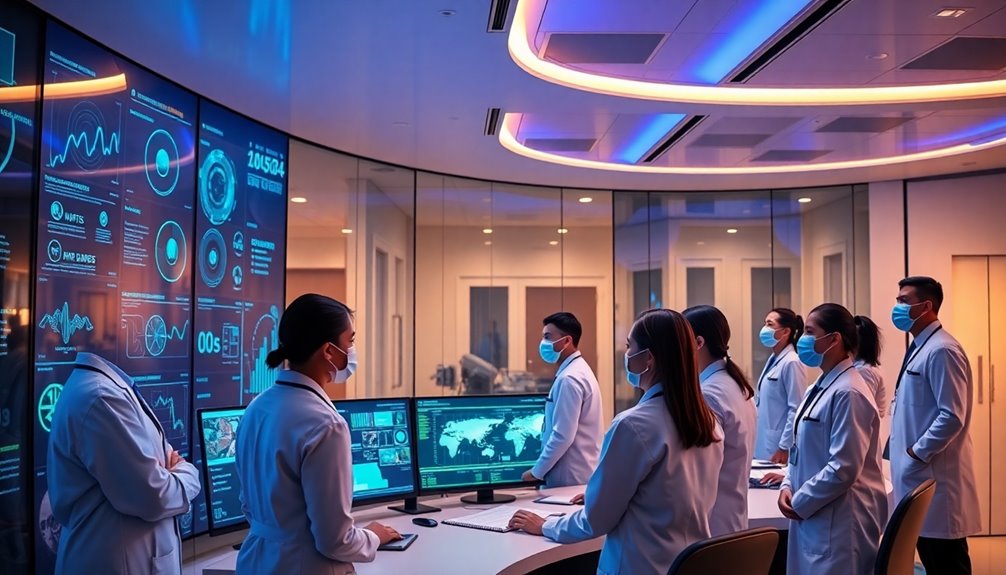AI deployment is transforming Virginia’s health system at a rapid pace, outpacing national trends. With more providers adopting these technologies, you might wonder how this evolution affects patient care, safety, and operational efficiency. State legislation emphasizes responsible use, but the full impact remains unfolding. As Virginia continues to integrate AI into healthcare, understanding these changes can help you stay informed about what’s next.

Artificial intelligence is transforming Virginia’s health system at a rapid pace, outpacing national adoption rates and reshaping how care is delivered. In late 2024, AI use in Virginia businesses reached 6.7%, with expectations to climb to 10.1% early next year. This growth far exceeds the national average, which currently stands at 5%, with projections of 6.5%. Northern Virginia, especially the Washington metro area, leads the charge, with 10.6% of healthcare providers already utilizing AI and an anticipated rise to 14.1% within six months.
Virginia’s healthcare AI adoption outpaces the nation, with Northern Virginia leading the charge at over 10%.
This rapid adoption reflects a concerted effort by healthcare providers to leverage machine learning, natural language processing, virtual agents, and voice recognition tools to improve diagnostics, streamline operations, and elevate patient care. The state’s recent legislation on high-risk AI systems emphasizes the importance of safety and fairness in healthcare AI applications. With these advancements, many providers are also considering preppy dog names to enhance their facilities’ welcoming atmosphere for patients.
You’ll notice that Virginia’s early 2024 AI adoption was much lower—around 4%—but the pace has accelerated quickly. Healthcare providers are seeking solutions that boost efficiency and outcomes, deploying AI-driven diagnostics that can detect health issues earlier and more accurately.
For example, AI models now analyze electrocardiograms to spot early signs of heart failure, allowing for earlier interventions that can save lives. Similarly, AI is helping identify neurological injuries by recognizing subtle patterns that might escape human evaluation, leading to quicker diagnoses and tailored treatments.
Beyond diagnostics, AI assists in matching patients with suitable clinical trials, broadening research opportunities and advancing personalized medicine.
However, this rapid evolution doesn’t happen in a vacuum. Virginia’s regulatory environment is evolving, especially with the passage of the High-Risk Artificial Intelligence Developer and Deployer Act, which could take effect as soon as July 2026.
This legislation targets AI systems making significant decisions affecting healthcare access and treatment, imposing a “reasonable care” duty on organizations deploying such systems. It also establishes a legal threshold, requiring AI to be the “principal basis” for decisions before anti-discrimination rules come into play.
These regulations aim to ensure safety and fairness but also require health systems to carefully strategize their AI deployment plans to stay compliant.
The Veterans Health Administration in Virginia exemplifies both the promise and challenges of AI. Despite setbacks with its $16 billion Electronic Health Records modernization, VA officials are optimistic.
They’ve developed over 200 AI initiatives aimed at improving veteran care and staff workflows, including predictive analytics to monitor health status and optimize resource use. The VA plans to resume EHR rollout in 2026, leveraging AI to transform veteran healthcare delivery despite ongoing budget pressures.
All these developments demonstrate that AI is quickly becoming a core component of Virginia’s healthcare landscape. From early diagnostics to operational efficiencies and regulatory oversight, the state is embracing AI’s potential to revolutionize health services, often outpacing broader national trends.









